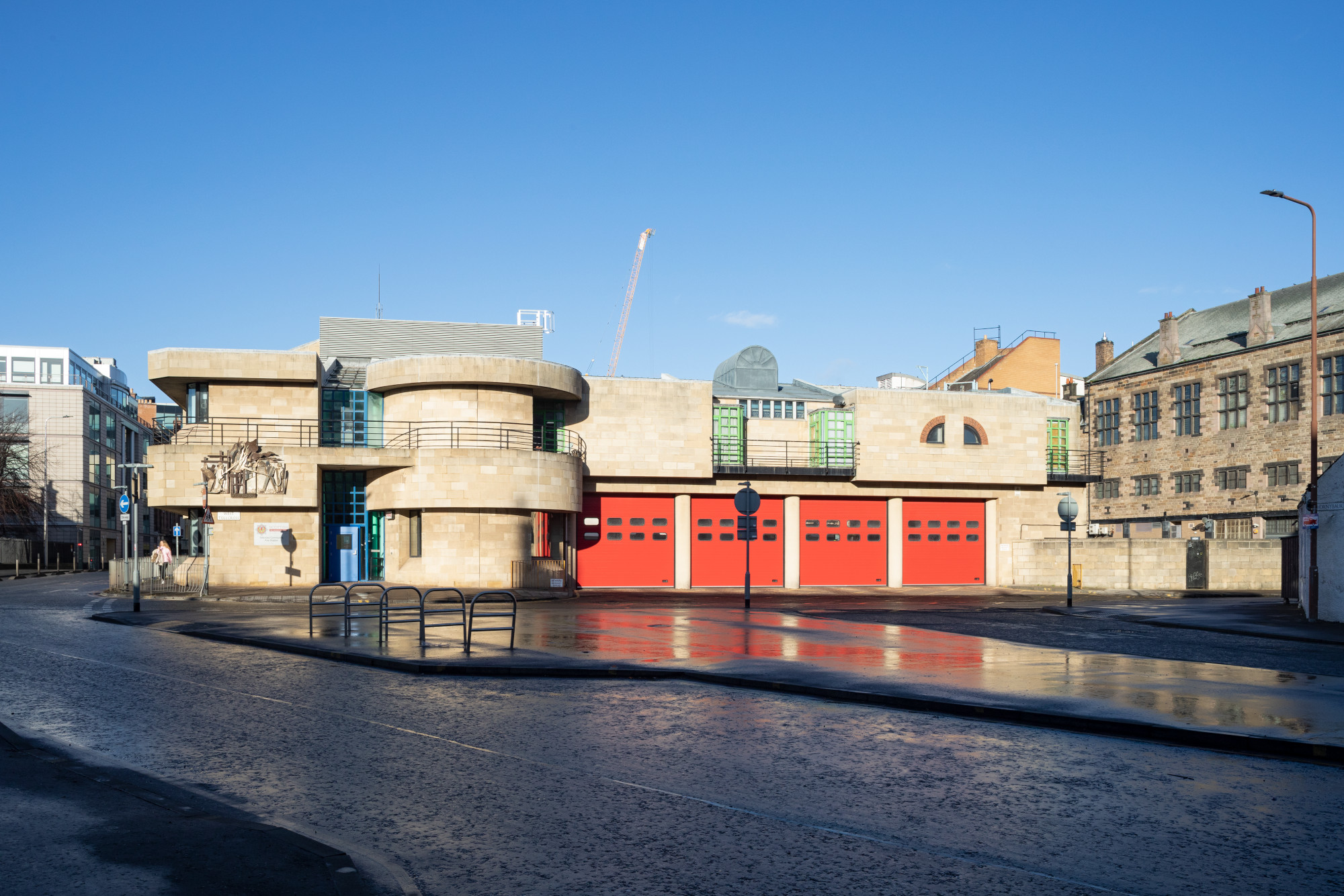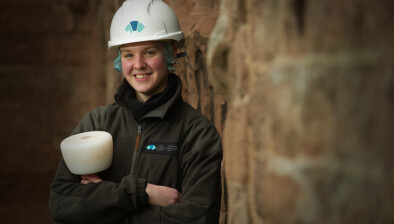Tollcross Fire Station listed as a major example of postmodern architecture

Historic Environment Scotland (HES) has designated Tollcross Fire Station as a listed building at Category B.
Located in Edinburgh city centre, the building has been listed for its significance as a major example of postmodern (PoMo) architecture in Scotland.
During its analysis, HES concluded that Tollcross Fire Station was unique amongst contemporary stations from the later 20th century for its exceptional architectural quality, combining the demands of a modern fire station with a thoughtful response to its compact urban site.
The building combines a bold and innovative design with traditional materials and references to historical Scottish architecture in a playful and artistic way.
Tollcross Fire Station opened in 1986, replacing the Fire Service’s previous Lauriston headquarters, and remains an operational fire station.
The new building was designed by Wick-born architect Donald William Bain, who worked with Lothian Regional Council Department of Architectural Services and on the development of Livingston during the 1960s. The relief sculpture mounted on the front of the building was the result of a design competition, and the winning design was by a then-third-year student at Edinburgh College of Art, David Roxburgh.
Dara Parsons, head of designations at HES, said: “The Tollcross Fire Station is one of Scotland’s major contributions to the postmodern style, and it is one of the best examples we have of this architectural style which is rare in Scotland.
“It now joins a very select few other notable buildings of the same era on the list of Scotland’s most important buildings, such as the Dundee Repertory Theatre and Princes Square in Glasgow.
“Anyone can propose a building for listing via our website. We are currently being asked to consider more of the buildings of the later modern period as recent as the late 1980s, as their architectural quality and contribution to our social and economic history is increasingly recognised.”
















